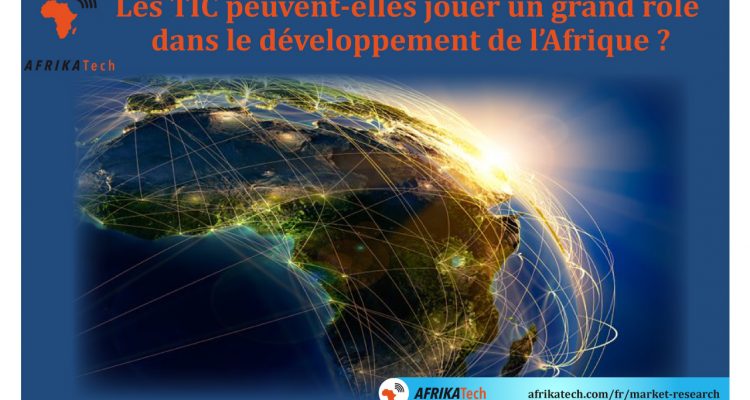Despite the presence of primary problems such as famine, food shortage and lack of energy, the importance of the Internet and the mobile phone is increasingly being emphasized. Indeed, although the digital revolution affects Africa quite late (compared to the West), it is unfolding there in a dazzling way. Whether through mobile payment (having been more successful in Africa than in Europe) or even by questioning working methods due to Covid 19. In one of its reports, the International Telecommunications Union (IUT) states that new information technologies will enable Africa to achieve the Sustainable Development Goals (SDGs).
State of the art of ICTs in Africa
Africans are increasingly integrating the use of digital technology into their daily lives. Here and there are a few innovations that make you feel:
- Mobile banking transactions
- Payment of bills via your mobile
- Paying taxes on a digital platform
- Reservations or online purchases …
However, progress needs to be made, in the establishment of infrastructure or the development of existing skills through appropriate training. However, initiatives from certain governments are being felt through collaborations with companies in Silicon Valley: intervention by Facebook and Google in Ghana, Nigeria to name but a few.
Being at the bottom of the ICT ladder, Africa is struggling to stand out. Mobile telephony is experiencing a meteoric development there compared to the rest of the world. Paradoxically, the number of indirect jobs in the sector is higher than that of direct jobs (respectively 2.4 million against 1.1 million in 2016). This is due to the birth of small trades relating to mobile telephony: telephone credit sellers (commonly called “callboxers”), telephone or accessory sellers and repairers …
In addition, the cost of internet connection in Africa remains the highest in the world. However, operators offer packages adapted to all social classes. In addition, they even allow free use of certain social network features such as Facebook, Whatsapp …
Impact of ICTs on the African economy
No field of activity is spared by ICTs: health, education, finance, agriculture, renewable energies all use it.
Health
ICT has an impact on the health sector at several levels: prevention, screening, treatment, access to care. Doctors not only have portable examination kits (AIDS, Malaria, Hepatitis, Diabetes, Blood pressure, etc.), as well as cell phones allowing them to take good quality photos. Thus making remote diagnostics easy. On the other hand, to alleviate the difficulty of accessing certain areas, the use of drones has been implemented; facilitating the dispatch of medicines or other medical items (blood bags, etc.)
Education
Before the health crisis linked to Covid 19, online universities and digital free access course platforms already existed. The confinement imposed by the disease has just allowed some establishments to get up to date in the matter. Indeed, universities, schools and colleges and high schools have been forced to find ways to provide courses (to take exams too) online via a website.
Finance
The effects of digital technology on banks are considerable. Today, there are banks, insurance companies and even micro finance companies that do not yet have mobile or online services at their fingertips. This is without counting the telecommunications operators who got involved long before with mobile payments. Including the possibility of linking their bank account to their mobile payment account.
ICT and African development …
The use of ICTs by African countries is seen as an engine of its development. ICT will thus enable Africa to achieve the SDGs fairly quickly; and this, more quickly than its predecessors (the countries of the North). This to the extent that payments and money transfers by telephone like Wari, MTN Mobile Money, M-Pesa, Orange Money have developed in a context of almost non-existent banking services. In addition, the digital transformation is being felt both economically and socially.
Although ICTs are welcomed by Africans, there are still some limits to their full expansion, thus allowing Africa to enjoy full development. We can note the development of infrastructure, insufficient for the needs being felt. Despite the intervention of Western telecommunications operators, some areas remain off-grid. Thus leading to geographical fragmentation, on the one hand the connected city and on the other the unconnected villages. As a palliative measure, a reduction in communication costs, security of flows, extension of digital application sectors (livestock, agriculture, informal professions, etc.)


Leave a Reply